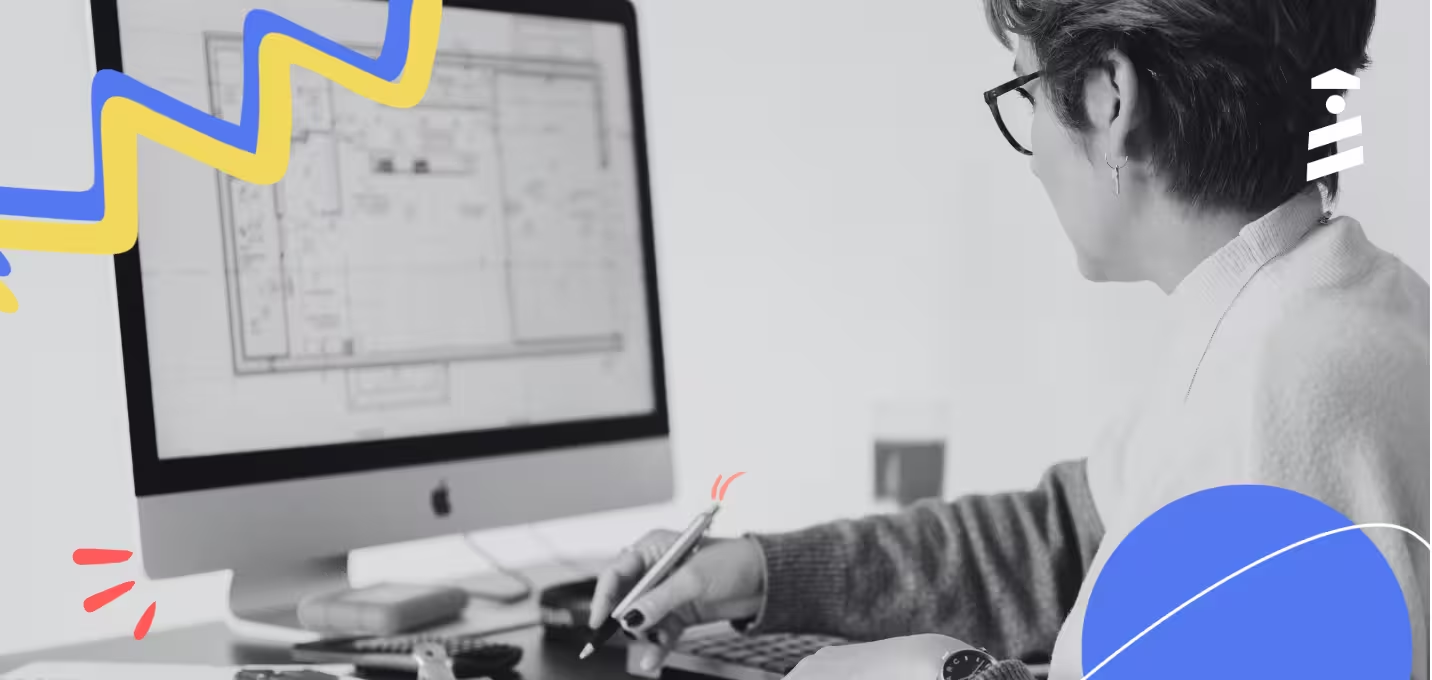

Every business head will tell you how important customer engagement is. But too often, there is no good example; just do this and that.
Especially where traditional engagement methods fail, we need good examples of customer engagement.
And today, we'll talk about exactly that.
If you're looking to get inspired for your engagement initiatives, you're in the right place.
In this article, we will look at what customer engagement is, why it matters, the best elements and methods for higher engagement, and the top examples.
Let's take a look ⬇️
TL;DR
- Customer engagement includes all interactions between a business and its customers, aiming to make customers loyal supporters and improve revenue.
- In terms of benefits, effective customer engagement communicates value, leading to increased loyalty, higher lifetime value, and improved feedback.
- Key engagement elements include user onboarding elements, banners and modals, resource centers, changelogs, and feedback collection.
- Examples of successful customer engagement include Spotify's personalized playlists, Netflix's tailored recommendations, Apple's community-building strategies, Sephora's interactive in-store and virtual experiences, and Nike's social media campaigns.
- Effective customer engagement requires understanding your audience and consistently creating great experiences using proven methods and examples from top brands.
What is Customer Engagement?
Customer engagement refers to all types of interactions between a customer and a business. It encompasses all communication activities, from the moment the two parties interact for the first time to after the business is done.
But the kind of engagement we are looking at today is a more conscious one.
And for that, you will want to start tracking a metric called customer engagement rate.
Strategically engaging with customers binds them to your company and makes them loyal supporters, thus increasing retention, creating good word-of-mouth, and consequently improving revenue.
What are the Benefits of Customer Engagement?
There are many benefits to evaluating and enhancing your customer engagement efforts. Here are the top pros:
Increased Customer Loyalty
A customer who chooses to stick with your business and solution is probably getting a certain level of value from you.
Unless that value had been communicated with the right engagement methods, it wouldn't have been perceived in the first place. Backtracking that, customer engagement means making value visible.
And that means elongated customer loyalty.
Higher Lifetime Value
Engaged customers typically have a higher lifetime value due to their consistent purchasing behavior and willingness to spend more.
So, the more you engage a customer, the more you contribute to their lifetime value.
Improved Customer Feedback
Lastly, a well-engaged customer will be more willing to provide feedback and help where possible.
This then naturally turns into a nice little cycle, where each feedback feeds into better engagement methods and initiatives.
And that is definitely a win-win for you.
Now, if you're looking for customer engagement best practices, don't forget to check out our guide to customer engagement here 👈
How to Drive Customer Engagement
Customer engagement comes very naturally to most customers, especially inside your product. This is because the best customer engagement tactics are hidden in plain sight.
Using UX elements and some engagement methods, you can easily engage your users without causing annoyance or disruption in the customer journey.
Here are a few of these elements:
1- User onboarding elements
User onboarding elements are often the very first interactions your users and customers come across when using your product.
Naturally, they are invaluable in setting the tone for a long-term engagement.
First of all, a good welcome modal can instill certain emotions and provide information from the get-go.
For example, this cool welcome screen from Duolingo gives users a firm message:
They are welcome, and they are recognized by their name, so the journey will be personalized. These are great ways to start engaging.

Another onboarding UX element like this is onboarding checklists.
They communicate a sense of ease and organization while pushing the users to engage more with the rest of the product.

Other onboarding elements, like interactive guides, tooltips, and hotspots, all play their role in essentially one goal: to engage users from the start and make sure they become long-term customers.
2- Banners and announcement modals
Banners and announcement modals are irreplaceable for customer engagement simply because they are very explicit forms of engagement.
Both UX elements exist to announce and inform customers, making them the biggest weapons in your in-app customer engagement arsenal.
For example, this Adobe announcement modal works in many ways:
It welcomes users; it immediately displays the newest additions to its feature set, and it displays images to heighten engagement.

Similarly, a banner works in letting users know about big events and deals and can work better with less disruption and more upfront information.
Here's a good example from Udemy:

3- Resource centers
Resource centers are great tools for higher engagement since they are widgets rights inside your product and can have different materials that appeal to different needs.
More often than not, they work to engage users who are having problems with your product by offering support materials.
For example, here's how Grove HR utilizes its resource center:

With onboarding materials, external links, and searchable help articles, this widget is a hot point of engagement.
4- Changelogs and product update pages
Another UX element that fuels user and customer engagement is a well-designed changelog.
In principle, a changelog or a product update page is pretty meta.
Its mission is to update and inform users about the product, often inside the product. Though we might overlook it from time to time, with the right approach, it can be very engaging.
For example, Letterdrop has a pretty straightforward approach to it:

Meanwhile, UserGuiding uses a full-on Product Updates page with labels and links. This changelog can also be added to resource centers to make it more accessible as well.
5- Feedback collection and in-app surveys
Now, we have engagement elements to inform, offer help, and onboard users.
However, there is one more engagement form to ensure customer engagement comes full circle, which is feedback.
By collecting feedback, we can engage customers in a way that ensures other engagement initiatives in the future are successful.
A good example of this is from HubSpot Community, where they ask if they can have a quick survey:

Now, if you want to build in-app surveys for higher engagement, UserGuiding is a good place to start. Here's an example of a cool survey created with UserGuiding:
Wanna give it a try with ready-to-use templates and customization?
Now we know the engagement elements in SaaS, but what does customer engagement look like in real life?
5 Best Customer Engagement Examples
Customer engagement exists in many forms, inside and outside your product.
Some brands in the market know exactly how to approach their customer engagement initiatives, and here are the best of them:
1- Spotify: Discover Weekly

Spotify is a product run on superior engagement tactics.
Its main driving force is personalization and one of the best engagement methods on the platform is Discover Daily.
It does more than offer new music. It takes into account listening patterns, like how often you listen to a specific genre at a specific time of day.
Every Monday, a fresh Discover Weekly playlist featuring thirty customized tracks is released. This keeps things fresh and introduces users to other music genres and performers that they might like.
And that level of engagement naturally leads to a more sophisticated product experience.
2- Netflix: Tailored Recommendations

A Netflix pattern we are pretty used to is its tailored recommendations.
It is a brilliant engagement tactic that often goes unnoticed because Netflix inserts it naturally into its interface.
It works pretty simple:
Netflix makes recommendations for shows and movies based on your viewing behavior. It ties in one experience to another, keeping the users inside the platform smoothly.
It has gotten so seamless that Netflix prompts up another show once the show you're watching is finished, and the recommendations are so spot-on that you don't get annoyed by the experience.
You barely even notice it most of the time.

By keeping the engagement so natural, Netflix garners higher view time and better retention in the long run.
3- Apple: Community Building

Tomorrow, Apple could run out of new innovations. But they probably can't run out of loyal customers.
Through consistent customer engagement strategies, Apple has secured a place where there is a community of people willing to buy and promote Apple every day.
And maybe the best engagement tactic of all is Apple using that community.
Through events, online forums, and more, Apple nurtures this community and encourages members to engage and stay engaged.
For example, the Apple Support Community consists of Apple enthusiasts supporting fellow Apple users. This is not in any way because Apple cannot afford to have bigger support operations.

It is because this way, the engaged gets to be the engaged.
And that alone is a genius customer engagement method that few manage to replicate.
4- Sephora: Interactive In-Store Experiences

Sephora, as a retailer, offers a unique experience when compared to similar brands.
Their first engagement tactic is their in-store experiences, where you can get beauty classes, makeovers, and product trials.
But it doesn't end there. They get virtually hands-on as well.
The Sephora app provides personalized recommendations, much like Netflix, according to your previous preferences.
They have also offered VR makeup try-ons in the past, which shows that they are committed to higher customer engagement.
5- Nike: Social Media Engagement

Nike is well known for its social media presence and compelling campaign around sports.
This has become a major part of Nike's brand identity over the years, and right now, it is the most important engagement channel for the company.
The social media campaigns are often interactive, have a compelling narrative, and have a touch of user-generated content as well.
All that makes higher engagement possible while contributing to better acquisition and retention.
In Summary
There is not a standard approach to customer engagement.
It requires understanding your audience and being willing to create a great experience every time you interact with them.
So use the elements above for top class engagement UX and make sure to get inspo from the best of customer engagement examples above.
Best of luck 🍀
Frequently Asked Questions
What is customer engagement with examples?
Customer engagement is an act of communication with your customers. The way Nike engages customers via social media and how Netflix recommendations garner more views can be good examples.
What are the 6 key elements of customer engagement?
The six main components of customer loyalty are personalization, consistency, responsiveness, value, community, and innovation.
What are the 4 P's of customer engagement?
The 4 P's of customer engagement are personalization, proactivity, participation, and passion.
What are the 5 levels of customer engagement?
The 5 levels of customer engagement are awareness, consideration, purchase, retention, and advocacy.















.svg)
.svg)
.svg)
.svg)
.svg)











.svg)
.svg)




.png)


















